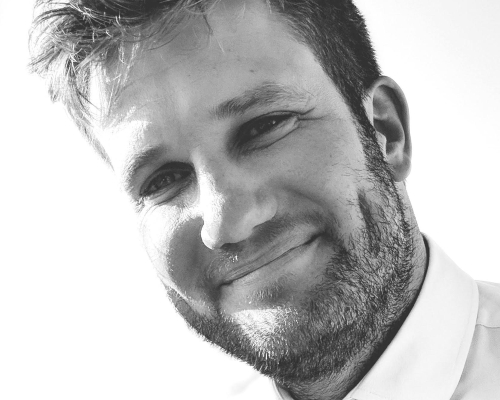Romesh Ranganathan on teaching – “You’re constantly judged”

Adam W Hunter catches up with comedian and broadcaster Romesh Ranganathan to discuss his previous role as a teacher…

- by Adam W Hunter
- Former teacher turned writer, journalist and musician

Romesh Ranganathan left teaching in 2011, as his stand-up comedy ‘hobby’ began to take off.
“I really thought I’d found what I was going to do for the rest of my life,” he now says of his former teaching career. “But if I’m honest, there were teachers who were fantasising about leaving. They loved teaching, but something had made them think it wasn’t what it used to be.”
Teacher retention
In recent years, the conversation around teacher retention has assumed a bleak tone. There’s talk of the sector being in ‘crisis’ and unsustainably high training costs.
“At the time I got into teaching they were throwing a lot of money into recruitment. I’d argue that they’d forgotten about retention,” Romesh observes.
“The advertising, the training – it felt amazing and exciting, but I [also] remember seeing teachers who were a bit f***ed off, for want of a better phrase. I’m thinking, ‘What’s up with these guys, man?’”
Romesh’s career advanced quickly, and took in a swift promotion to head of sixth form. I offer up two sayings – ‘Cream rises to the top’ and ‘Sh*t floats’. Which was he?
“I [also] remember seeing teachers who were a bit f***ed off, for want of a better phrase”
“I think I’m sort of like a creamy sh*t,” he replies. “I’d like to think I was good at engaging kids and dealing with parents – but when it came to having a long-term overview of where the sixth form was going, I really was dreadful.”
Stressful teaching
The extra recognition that came with the role was motivating at first, but he soon came to see what had caused some of his colleagues to become so jaded.
“I’d been encouraged the whole way, and it was all very exciting, but I’ve never had a day in my entire comedy career that was anything like as stressful as teaching.” he reflects.
“As a comedian, I do an hour and a half in the evening. Teachers deliver five or six quality, different hours every single day, and then have to assess how well it’s gone. People don’t realise.”
Teacher workload
School leaders have made some progress in improving workload demands and expectations – but when the government and Ofsted are able to pile further demands on teachers almost overnight, the messaging remains very mixed.
“I think schools do the best they can,” Romesh concedes, “but as a maths teacher, we’d just about mastered what we were doing, then they’d have a change of focus and you’d have to relearn everything. It just felt constant. You never felt on top of it.”
He also wasn’t a fan of the creeping quantification. “You’re constantly told you’re going to be judged on this or that, because ‘We’re analysing the value you’re adding to your classes,’” he says, “and all that’s great. But you’ve got to accept that it’s human beings you’re dealing with.
“We’d just about mastered what we were doing, then they’d have a change of focus”
“Most of the teachers I encountered were working at their full capacity. You’d say to them, ‘You know you’re absolutely pushing it; you’re absolutely at the top level of what you can handle? Well, you’ve got to do this thing as well, and there’s absolutely f*ck all we’re going to do to compensate you.’ I found that unreasonable.”
But then there’s that refrain so often used to counter teachers’ claims that they work hard – ‘What about the holidays?’. It’s a battle that Romesh used to wage as a school union rep, and still does among his friends.
“I’d get in 7:30, leave about 5:30 and then work into the evening,” he remembers. “I basically started to accept that as normal. The idea you get six weeks off in the summer is b*llocks, it’s a fallacy, and you simply don’t have evenings and weekends. It upsets me that people still have these false perceptions.”
Teacher pay
Pay soon emerges as a recurring topic during our conversation. Though something of an outlier given his subsequent career, Romesh understands very well why those teachers who leave often do so for less pay, coupled with shorter hours.
“Nobody gets into teaching for the money,” he says. “You have a sense of vocation and you’re dedicated, both of which contribute to stress, so you’re relying on teachers’ goodwill to keep them.
“Nobody gets into teaching for the money”
“In [my previous] jobs, literally the moment I switched off my computer I stopped thinking about it. Teaching just wasn’t like that – so I can understand why someone might take a bit less money in exchange for a social life.”
What ultimately keeps teachers going back for more is that sense of vocation, the perfectionism and those opportunities to do good for good people.
Romesh Ranganathan’s teaching highlights
Romesh reflects on the lessons where the stars all seemed to align…
Encouraged by the idea of getting students to set their own study questions, Romesh once experimented with a Y8 project on quadrilaterals.
“They started asking questions they thought I wanted to hear, and I was thinking, ‘Man this is great!” he remembers.
“Then one kid said, ‘Which one would make the best parachute?’ Obviously, as soon as he asked that, none of the kids gave a sh*t about any other questions.”
Despite initially fearing that he had completely lost control, Romesh spent three successful lessons dropping Blu Tack paratroopers out of the classroom window attached to different quadrilaterals.
“I kind of panicked and thought I was going to get some sort of warning,” he recalls, “but the kids were properly engaged. I’m so lucky, because it really could have gone more tits up than it did!”
Adam W Hunter is a former teacher turned writer, journalist and musician; follow him on X at @adamwhunter. Catch Romesh Ranganathan alongside Rob Beckett in the latest series of Rob & Romesh Vs. Listen to his comedy podcast series, Wolf and Owl, which he co-presents with fellow comedian Tom Davis.










